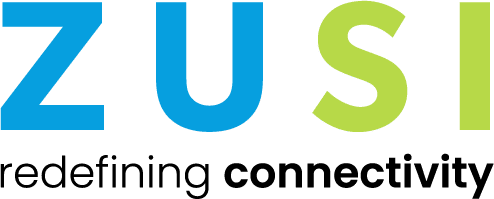IoT devices, or Internet of Things devices, are physical objects embedded with sensors, software, and other technologies that connect and exchange data with other devices and systems over the internet.
These devices can range from simple consumer gadgets to complex industrial machinery, all aimed at collecting, transmitting, and sometimes even analysing data to perform specific tasks or improve efficiency.
Types of IoT Devices
- Consumer IoT Devices. These are the devices most familiar to the average person. Smart thermostats, wearable fitness trackers, home security cameras, and smart speakers like Amazon Echo or Google Home fall into this category. They are designed to enhance convenience, improve lifestyle, and provide users with valuable insights into their daily habits.
- Industrial IoT (IIoT) Devices. IIoT devices are used in industrial settings to monitor and optimise processes, improve safety, and increase productivity. Examples include sensors embedded in manufacturing equipment to detect faults or anomalies, GPS trackers in logistics to monitor shipments, and smart meters in energy grids to manage consumption efficiently.
- Medical IoT Devices. These devices are revolutionising healthcare by enabling remote patient monitoring, personalised treatments, and real-time health data analysis. Wearable health monitors, smart insulin pumps, and connected medical implants are just a few examples of how IoT is transforming the medical industry.
- Smart Infrastructure. IoT technology is also being used to create smart cities with connected infrastructure such as smart streetlights, traffic management systems, and environmental sensors to monitor air quality and reduce pollution.
- Agricultural IoT Devices. In agriculture, IoT devices are used for precision farming, monitoring soil conditions, optimising irrigation, and tracking livestock health. These technologies help farmers increase crop yields, reduce resource usage, and make farming more sustainable.
- Logistics and Transport IoT Devices. In fleet management and transport, IoT devices are used to track distance travelled, driving efficiency and fuel consumption. These tracking devices help to make routes more cost effective and provide data to track packages and enhance customer satisfaction.
How do IoT Devices Work?
At the heart of every IoT device is a combination of sensors, actuators, and connectivity components. Sensors collect data from the device’s environment, such as temperature, humidity, route tracking, motion, or light intensity. This data is then processed by onboard software or transmitted to a central server or cloud platform for analysis.
Actuators are components that enable IoT devices to take action based on the data they collect. For example, a smart thermostat might adjust the temperature based on occupancy patterns detected by motion sensors, or a smart irrigation system might turn on sprinklers when soil moisture levels drop below a certain threshold.
Connectivity is what enables IoT devices to communicate with each other and with other systems over the internet. This can be achieved using various communication protocols such as Wi-Fi, Bluetooth, or cellular networks, depending on the specific requirements of the application.
The Impact of IoT Devices
The proliferation of IoT devices is driving significant changes across various industries and aspects of daily life:
- Increased Efficiency: IoT devices help optimise processes, reduce waste, and improve resource utilisation in industries ranging from manufacturing and agriculture to healthcare and transportation.
- Enhanced Convenience: Consumer IoT devices make everyday tasks easier and more convenient, from controlling household appliances with voice commands to tracking fitness goals on a smartphone.
- Improved Safety and Security: IoT technology is being used to enhance safety and security in various domains, such as monitoring for potential hazards in industrial settings, securing smart homes against intruders, and tracking the location of assets in logistics.
- Data-driven Insights: The data generated by IoT devices provides valuable insights that can be used to make informed decisions, identify trends, and predict future outcomes in fields like healthcare, finance, and marketing.
IoT devices are transforming the way we interact with the world around us, enabling greater connectivity, efficiency, and convenience.
From smart homes and wearable gadgets to industrial machinery and smart cities, the possibilities for IoT applications are endless. As these technologies continue to evolve and mature, we can expect even greater innovations and advancements that will shape the future of our interconnected world.
Are you ready to embrace this new technology and transform your mobile solution?
Get in touch with a member of our team today.
Drop us an email @letstalk@zusi.co.uk or call us and speak to one of our team on 01782 409300.


